 Petzlover
Petzlover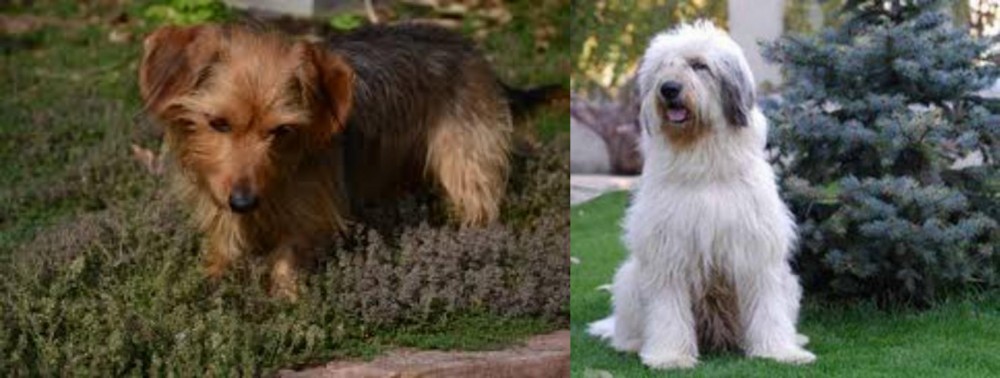 Dorkie is originated from United States but Mioritic Sheepdog is originated from Romania. Dorkie may grow 52 cm / 20 inches shorter than Mioritic Sheepdog. Dorkie may weigh 54 kg / 119 pounds lesser than Mioritic Sheepdog. Both Dorkie and Mioritic Sheepdog has almost same life span. Dorkie may have less litter size than Mioritic Sheepdog. Dorkie requires Low Maintenance. But Mioritic Sheepdog requires Moderate Maintenance
Dorkie is originated from United States but Mioritic Sheepdog is originated from Romania. Dorkie may grow 52 cm / 20 inches shorter than Mioritic Sheepdog. Dorkie may weigh 54 kg / 119 pounds lesser than Mioritic Sheepdog. Both Dorkie and Mioritic Sheepdog has almost same life span. Dorkie may have less litter size than Mioritic Sheepdog. Dorkie requires Low Maintenance. But Mioritic Sheepdog requires Moderate Maintenance
 Dorkie Terriers originate from the United States of America. The small Dorkie, a cross between the Dachshund and the Yorkshire Terrier has a short history, unlike the two dog breeds that were bred to bring him about.
Dorkie Terriers originate from the United States of America. The small Dorkie, a cross between the Dachshund and the Yorkshire Terrier has a short history, unlike the two dog breeds that were bred to bring him about.
These dog breeds were both used for hunting small animals but the Dorkie today is essentially a companion dog. The International Designer Canine Association started recording registration of the Dorkie from 2009.
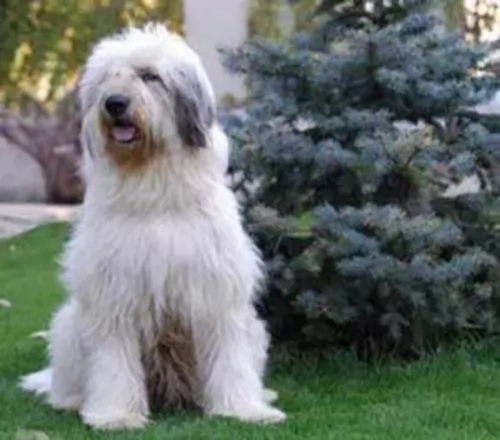 This is a large dog coming from the Carpathian mountain area of Romania.
This is a large dog coming from the Carpathian mountain area of Romania.
He has always been an excellent working dog, guarding and protecting sheep. Farmers always kept these dogs as working dogs, with no written records being kept about the development of the breed.
The breed is ancient, possibly dating back to ancient Roman times. It was in the 20th century that interest in the breed was ignited, and in 1981 the first official breed standard was recorded. The breed was also registered with the Federation Cynologique Internationale in 2005.
 The Dorkie is a small hybrid breed standing at 13 – 23cm in height and weighing 2 – 6kg. The Dorkie mostly comes with long, straight hair but there are however Dorkies who have the short hair of the Dachshund.
The Dorkie is a small hybrid breed standing at 13 – 23cm in height and weighing 2 – 6kg. The Dorkie mostly comes with long, straight hair but there are however Dorkies who have the short hair of the Dachshund.
The Dorkie is hypoallergenic, making them the ideal pet for allergy sufferers. They have floppy ears, a long body and short legs. The tail is long and furry. Most times they come in the Yorkshire Terrier colors of black and tan, but this can also vary.
The Dorkie is a loving, loyal, happy little dog who makes an excellent family dog. Although he isn’t looked upon as your typical lap dog, it is what he is really, as he loves nothing more than to be curling up on your lap or as close to you as he can get.
He loves spending time with his human family and is a social, extrovert kind of dog. Because he is also alert, he will do a good job of alerting his family to danger. He is good with children, but because of his smallness, rough children will need to be careful in rough and tumble games as he could get injured.
Even with a small dog like this, he will need training and socialization otherwise he can become a yapper, which comes from the Dachshund side. Training makes him obedient and relaxed around visitors in the home, and because he is an intelligent breed, he is easy to train and is a great dog for first time dog owners.
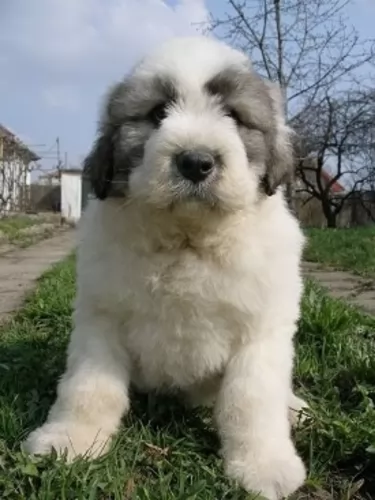 The Mioritic Sheepdog looks very much like the Old English Sheepdog with his huge body covered with long hair.
The Mioritic Sheepdog looks very much like the Old English Sheepdog with his huge body covered with long hair.
His head is also large with a black nose and smallish to medium length floppy ears. The color of the double coat is usually white, cream or pale gray, and sometimes you will find patches of these colors.
The tail has always been traditionally docked, otherwise the tail is left long with a slight curl at the end. The height of the dog is 65 to 75cm and he weighs roughly 50–60kg. Below the thick coat is a muscular dog with strong, straight legs which can help him become quite agile and speedy when needed. Allowed to breed, they can produce anything from 3 to 9 of the most adorable looking puppies.
The Mioritic Sheepdog is a balanced dog, loving to be with his owners but being wary of strangers. He is a brave dog, willing to guard his human family with his life.
He is also a strong-willed and dominant so it will be to his benefit to be trained and socialized so that he becomes obedient and easy to have around.Training won’t be difficult as he is an intelligent breed and already naturally obedient.
He is an energetic dog too so he will need to have regular exercise and games. He therefore gets on well with children in the home, loving to join in with all their games. He will need to be supervised around small children just because of his cumbersome, large size.
 Dorkies are easy going little dogs and adapt easily to life in the city or in the country.
Dorkies are easy going little dogs and adapt easily to life in the city or in the country.
Ideally they are inside dogs, feeling happy and content around their human family. They love adults and children and will get on well with other pets in the home too.
They are quite active little dogs and will thrive on games inside the home or outside in the garden. He may be small, but you can put him on a leash and take him for walks.
They make excellent pets and are only too happy to become a devoted and loyal family member of yours.
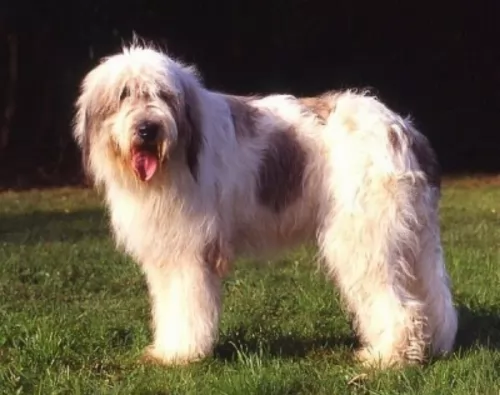 The Mioritic Shepherd has always been used to guard and protect livestock, but even though he has always taken this role seriously, he is calm and loving around his human family, making a splendid family pet.
The Mioritic Shepherd has always been used to guard and protect livestock, but even though he has always taken this role seriously, he is calm and loving around his human family, making a splendid family pet.
He also plays the role of guardian and protector of his human family seriously. He is a big strong dog and training and socialization will become necessary as he can become aggressive with certain people who he doesn’t trust.
Inviting one of these dogs into your home will ensure having a constant and loving companion at your side.
 The Dorkie, being a cross-breed, is a healthy dog and with good care can live t be 10 – 13 years of age. Nonetheless he is still prone to genetic problems and he can inherit traits from both parents.
The Dorkie, being a cross-breed, is a healthy dog and with good care can live t be 10 – 13 years of age. Nonetheless he is still prone to genetic problems and he can inherit traits from both parents.
A healthy diet will be needed to maintain the Dorkie’s health. You don’t want to overfeed your Dorkie, more so because he is a small dog.
The way you feed a dog can have a massive impact on his health and longevity. Just remember that a dog that is obese will battle to exercise, but also obesity can result in serious health problems, putting strain on the bones and joints too.
You don’t want to feed your dog day after day with kibble, and adding in some cooked rice, vegetables and chicken can just give him a more varied diet. Raw meat can also be included from time to time. Always ensure that there is fresh, cool water available to him.
The most common symptoms of an allergy is skin irritation – your pet will be constantly scratching and licking. Some skin conditions with your Dorkie can be cleared up quickly while some might be so severe as to require lifelong treatment.
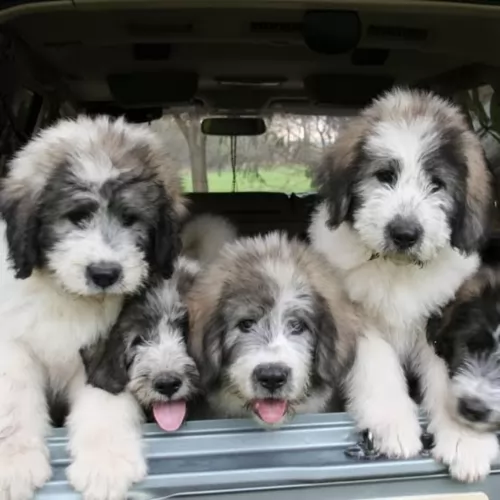 The Romanian Mioritic Shepherd Dog is a truly hardy dog breed and with good care such as good food and exercise can reach 14 years of age.
The Romanian Mioritic Shepherd Dog is a truly hardy dog breed and with good care such as good food and exercise can reach 14 years of age.
There are always some common dog illnesses to look out for and because he is a large dog, hip dysplasia can be a problem.
This is a disease where there is abnormal growth of the hip joints. Smooth movement of the joint is hindered and this leads to inflammation and pain.
At first you may find your dog limping and then you may find that after lying down, he battles to get up again. The joint becomes thickened with less mobility and the dog is reluctant to play like he used to. He will certainly need to get to the vet for treatments to make him more comfortable.
 What you feed your pet can play an important role in managing health and skin conditions. Speak to your vet about special quality dog foods that can help reduce skin conditions and other nasty reactions to common, unhealthy food ingredients.
What you feed your pet can play an important role in managing health and skin conditions. Speak to your vet about special quality dog foods that can help reduce skin conditions and other nasty reactions to common, unhealthy food ingredients.
Dorkies are very low maintenance dogs, and they will require a brushing every 2 weeks. Those with longer coats may require some professional grooming. Check their teeth regularly and brush them 2 or 3 times a week. The occasional nail clipping may also be required.
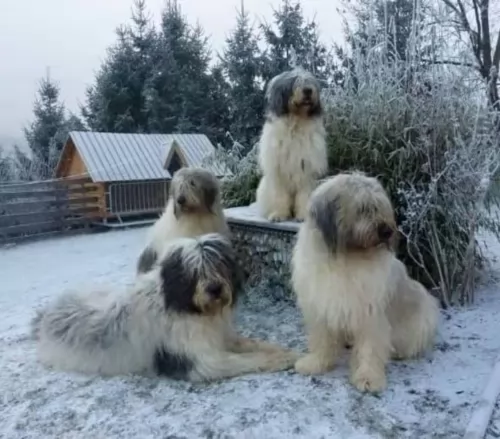 The Mioritic Sheepdog’s long hair is coarse and will need to be regularly brushed to keep it free of tangles. It will certainly need to be brushed 2 or 3 times a week, while some owners of this dog will prefer to have the coat professionally clipped. Because of the long hair, while brushing him it is an excellent time to check for ticks and fleas.
The Mioritic Sheepdog’s long hair is coarse and will need to be regularly brushed to keep it free of tangles. It will certainly need to be brushed 2 or 3 times a week, while some owners of this dog will prefer to have the coat professionally clipped. Because of the long hair, while brushing him it is an excellent time to check for ticks and fleas.
The food you give your pet plays such a critical role in his health and longevity. Always make sure that you’re giving your pet an uncomplicated diet to avoid stomach upsets.
Give him the best commercially manufactured kibble. To provide him with some variety, add in some boiled chicken, cooked vegetables such as potato, carrots and spinach to his kibble from time to time. He will also benefit greatly from having some raw meat added into the kibble occasionally.
Learn to know which human foods are totally toxic to him and avoid these. Make sure he is never without cool, fresh water.